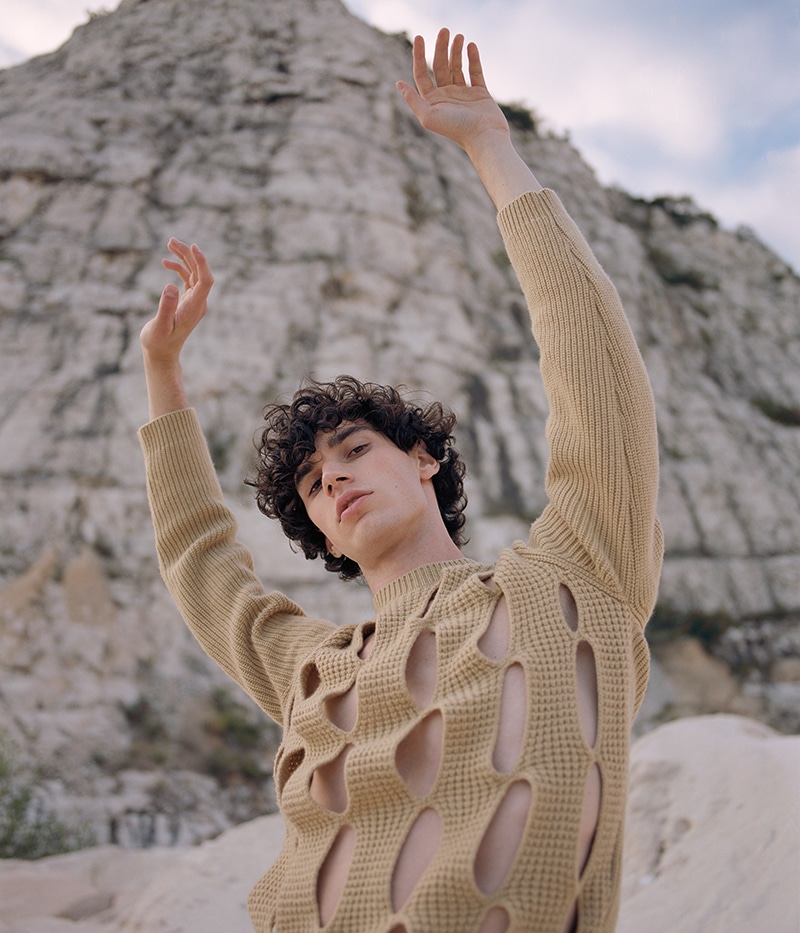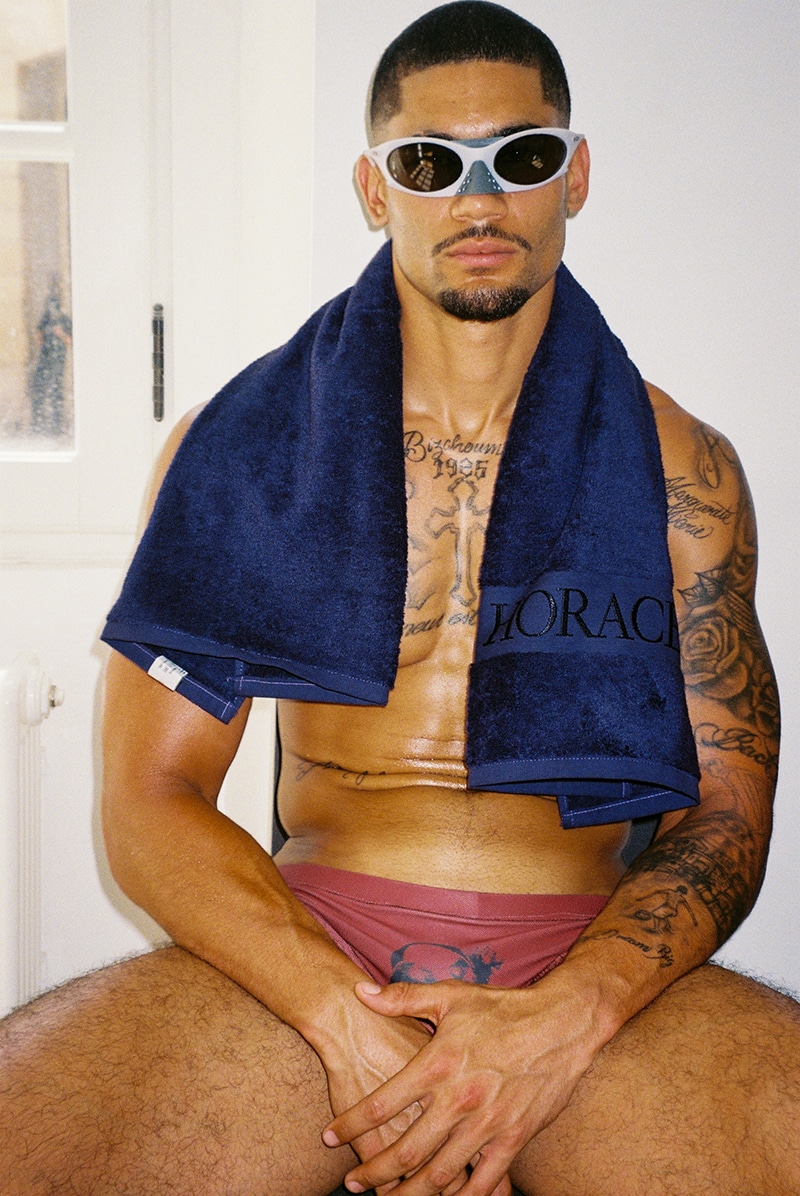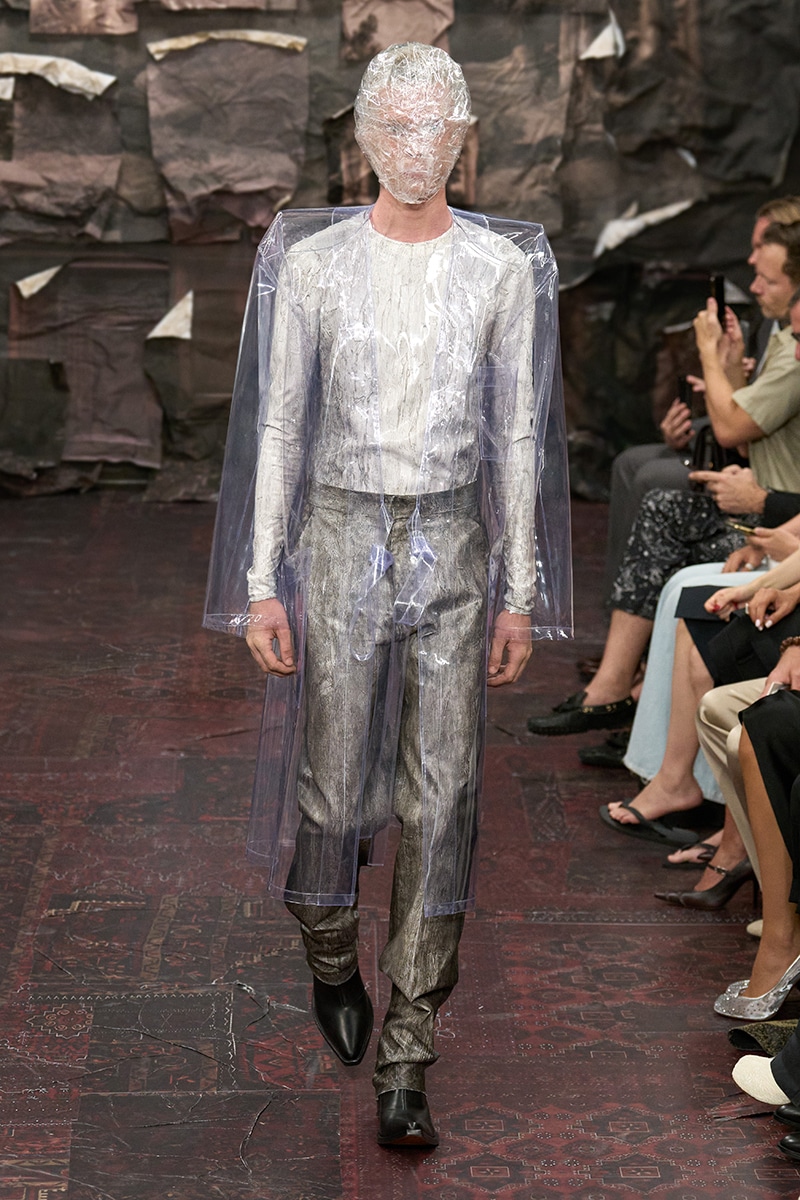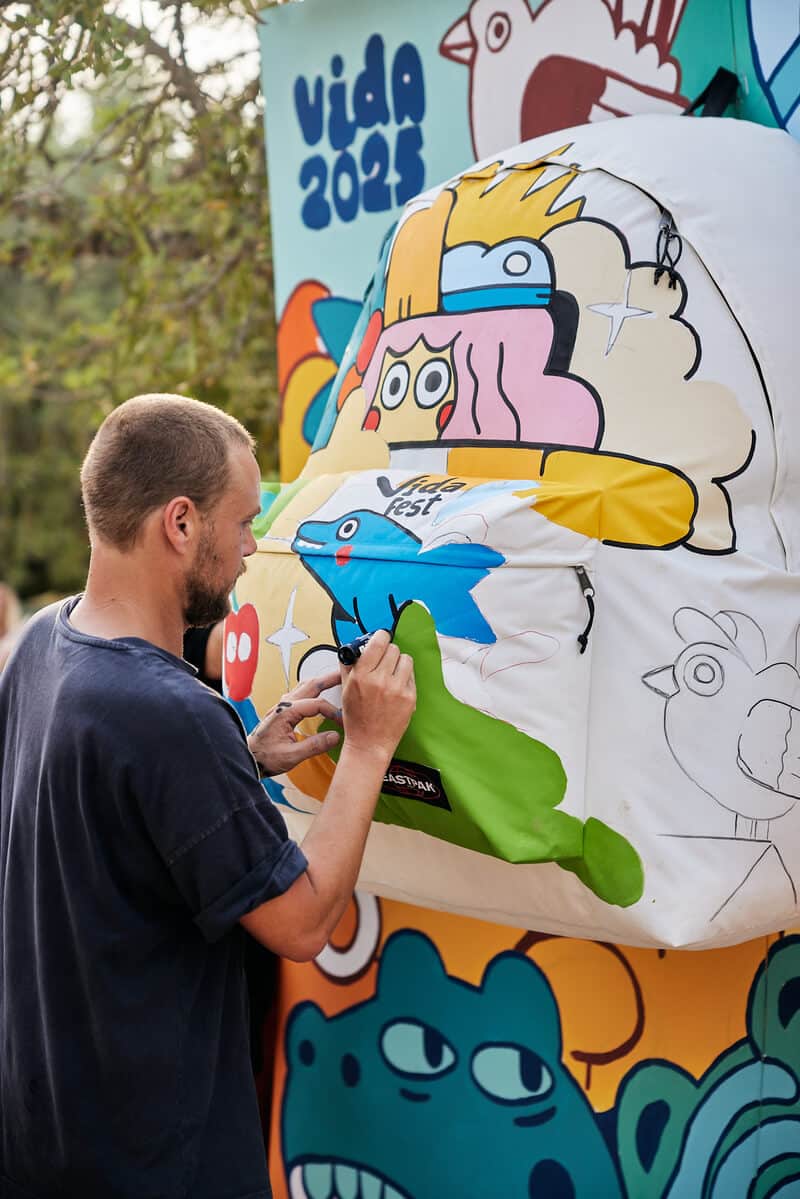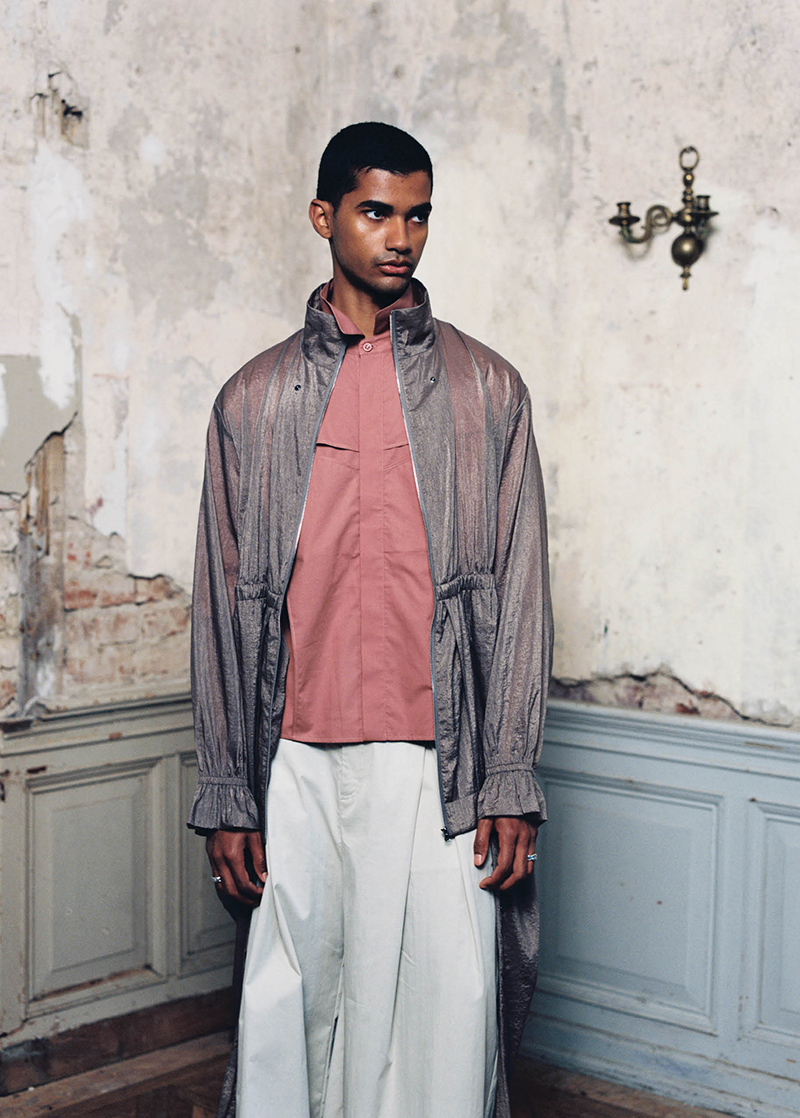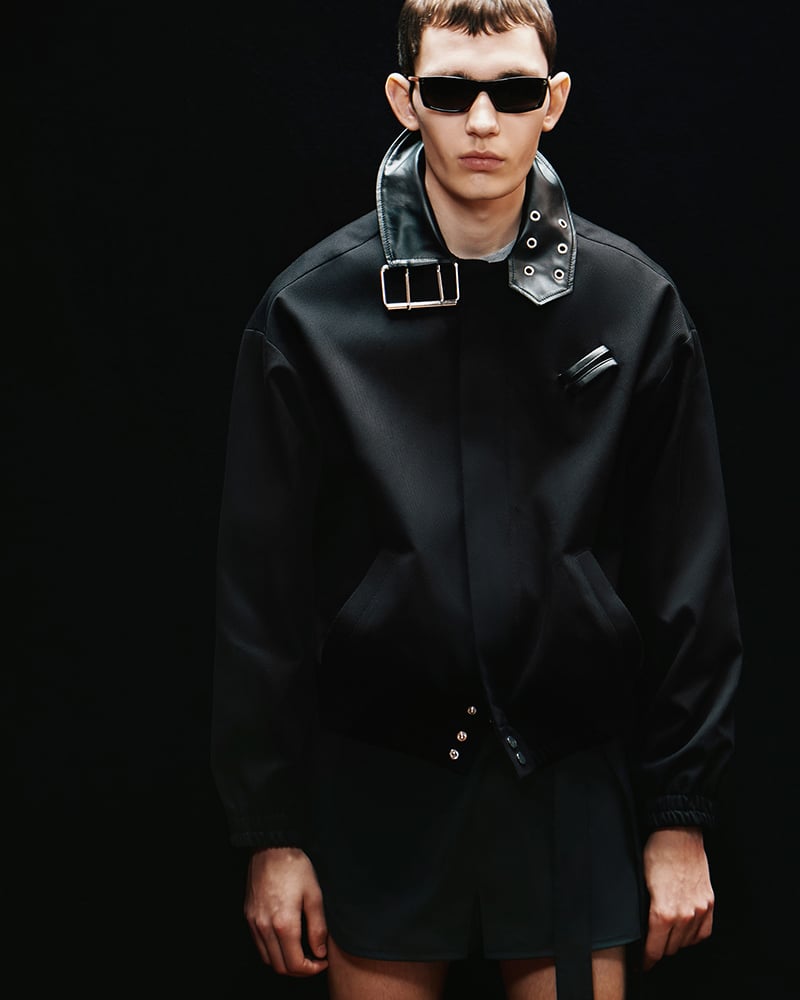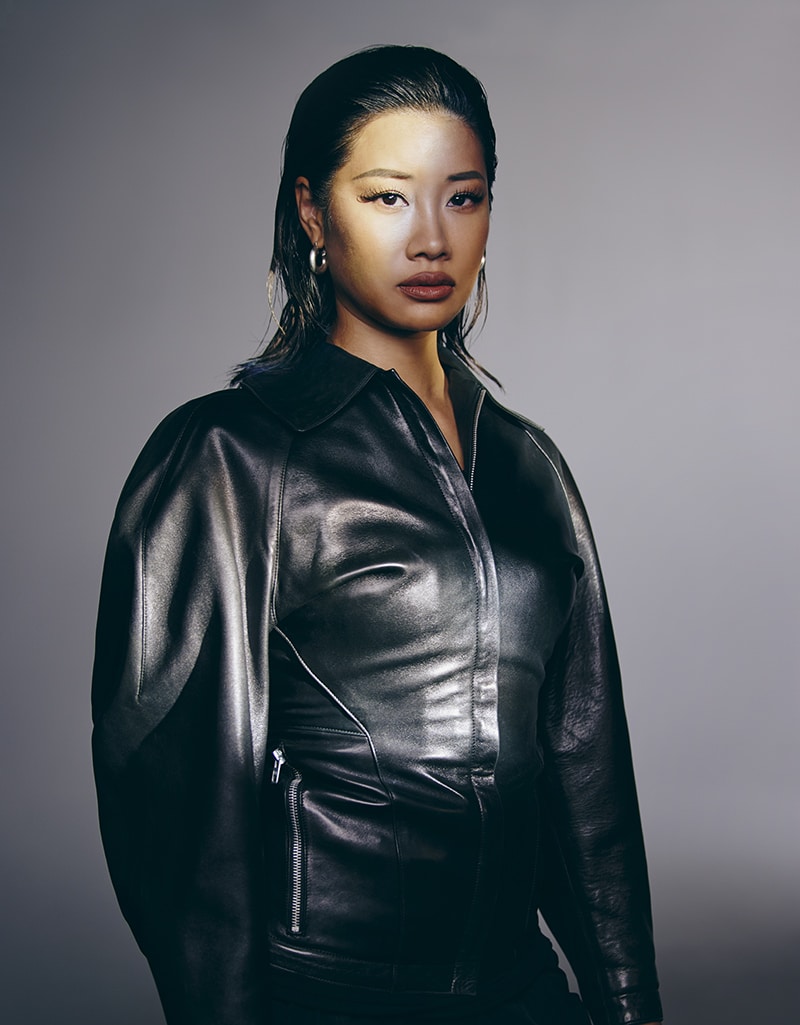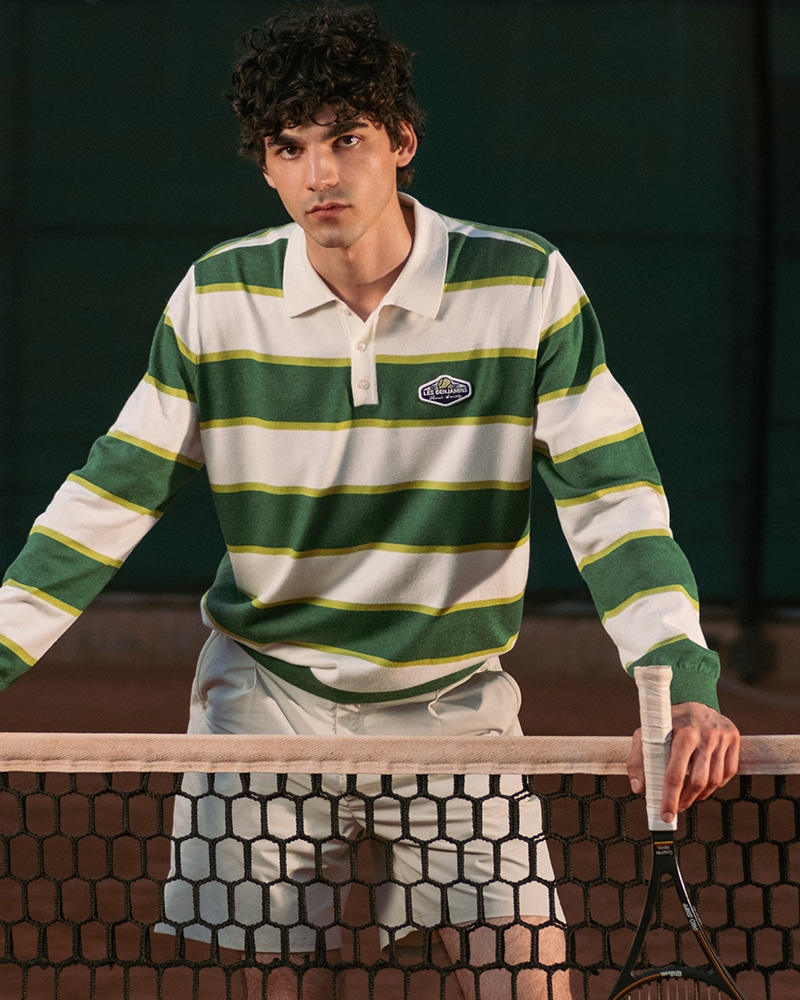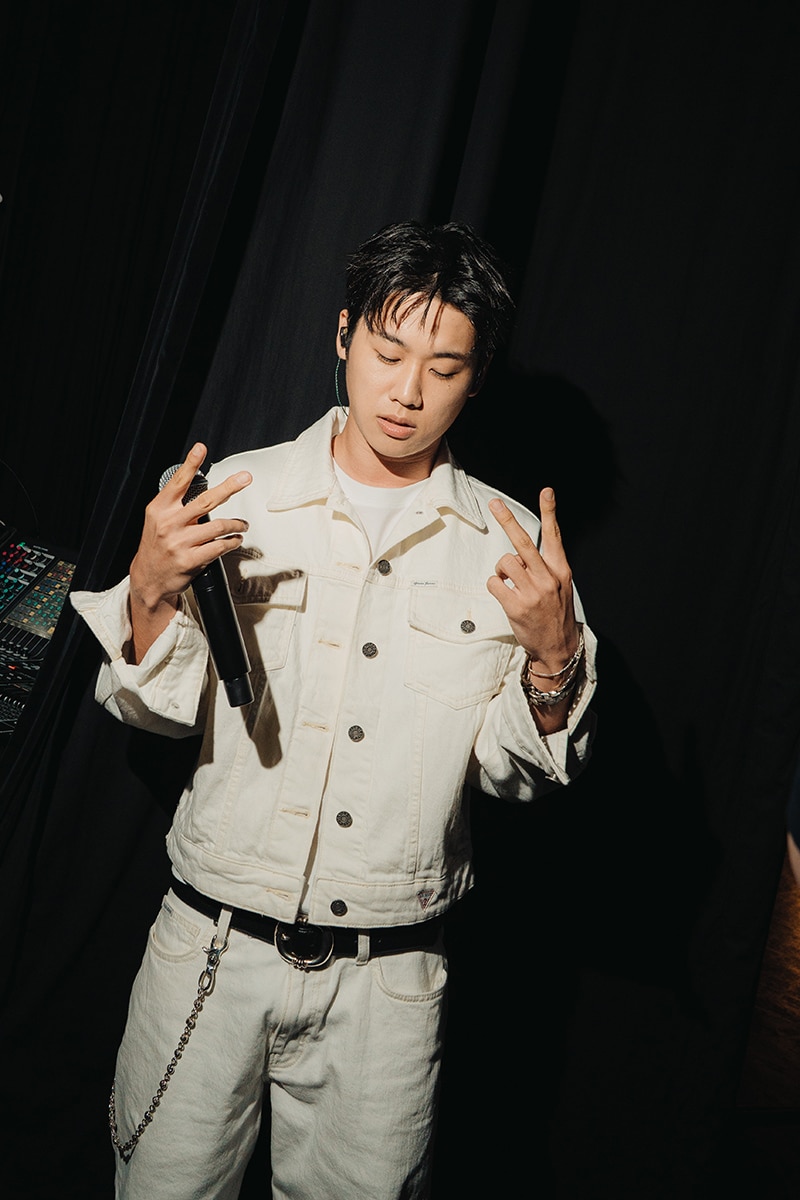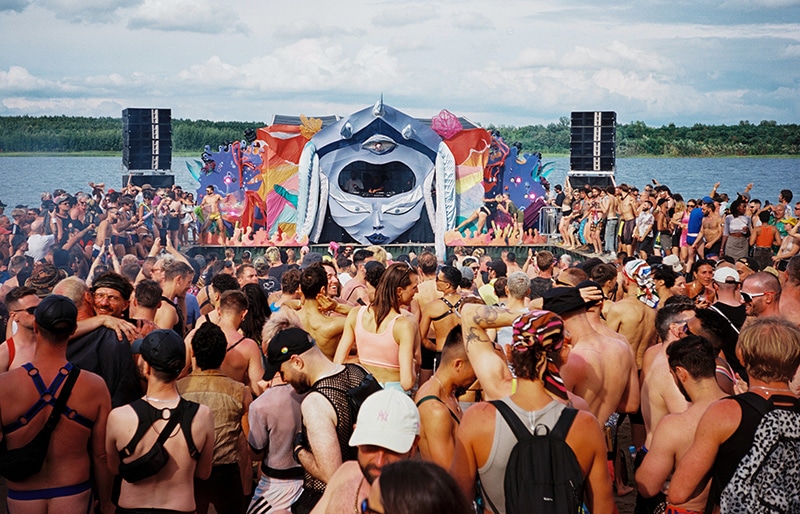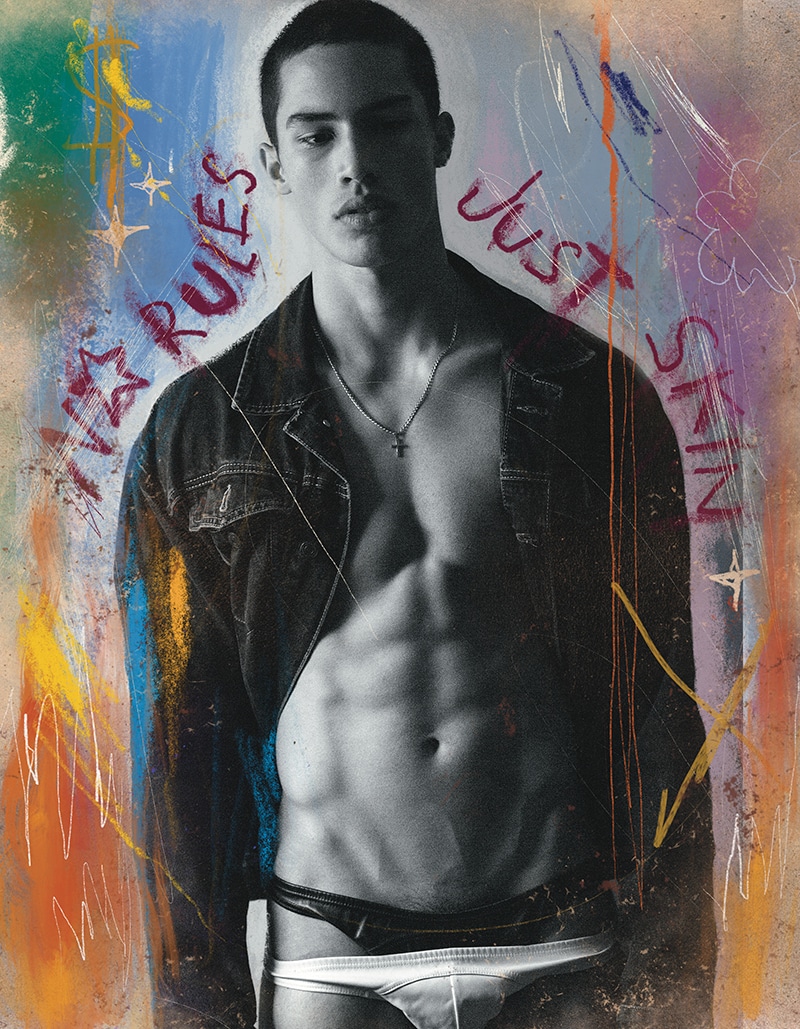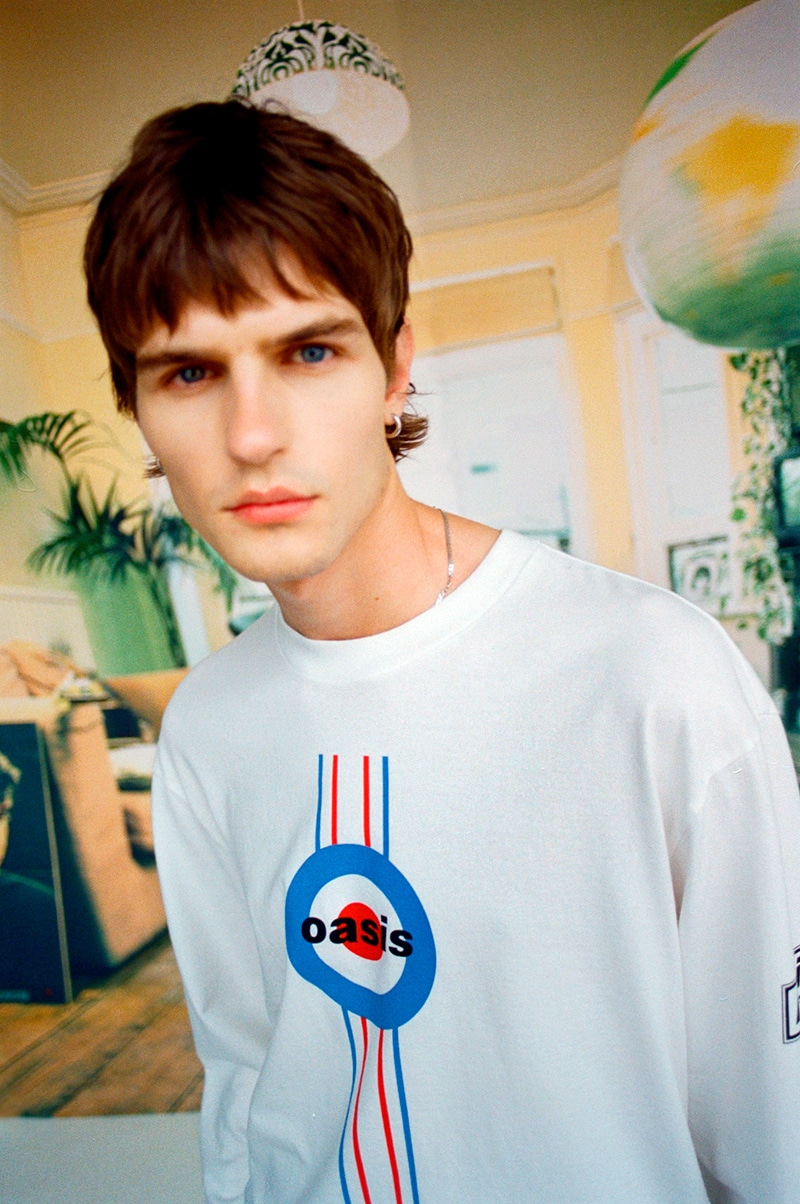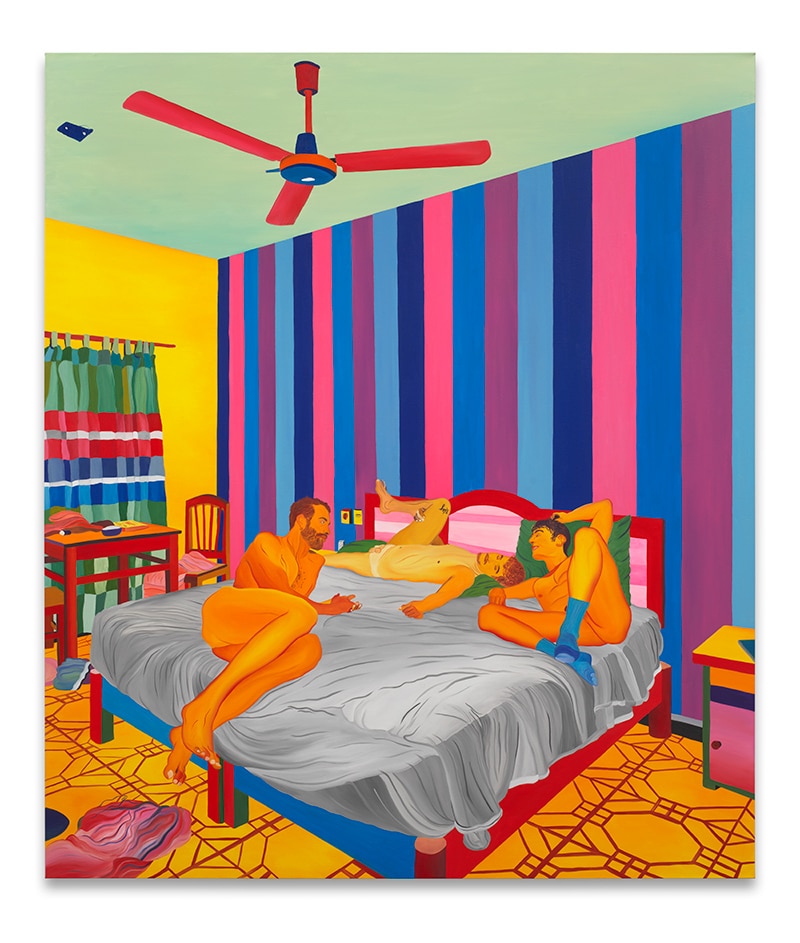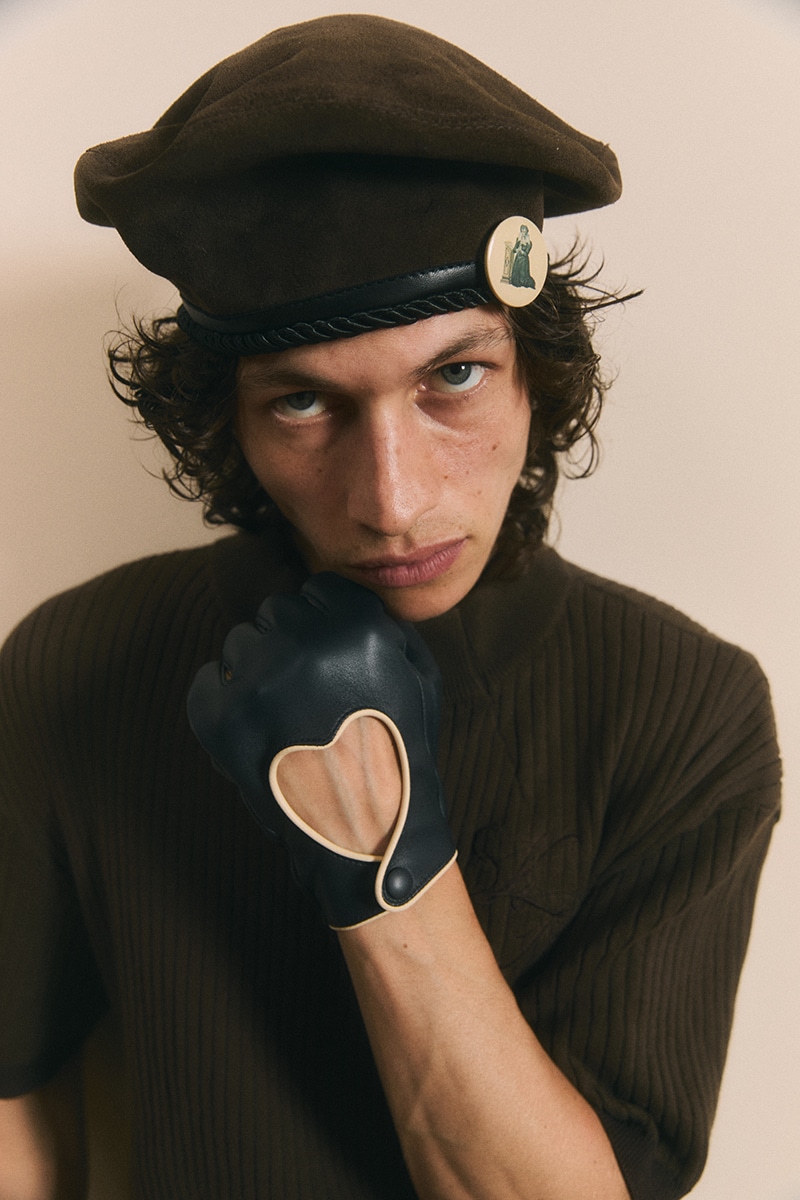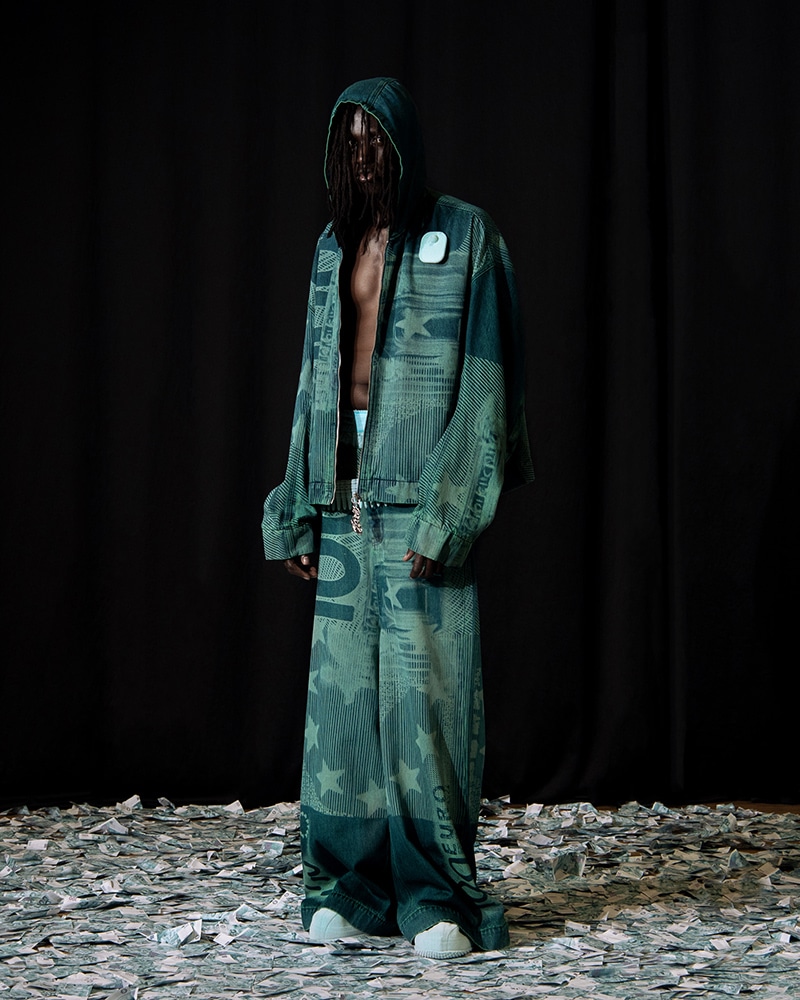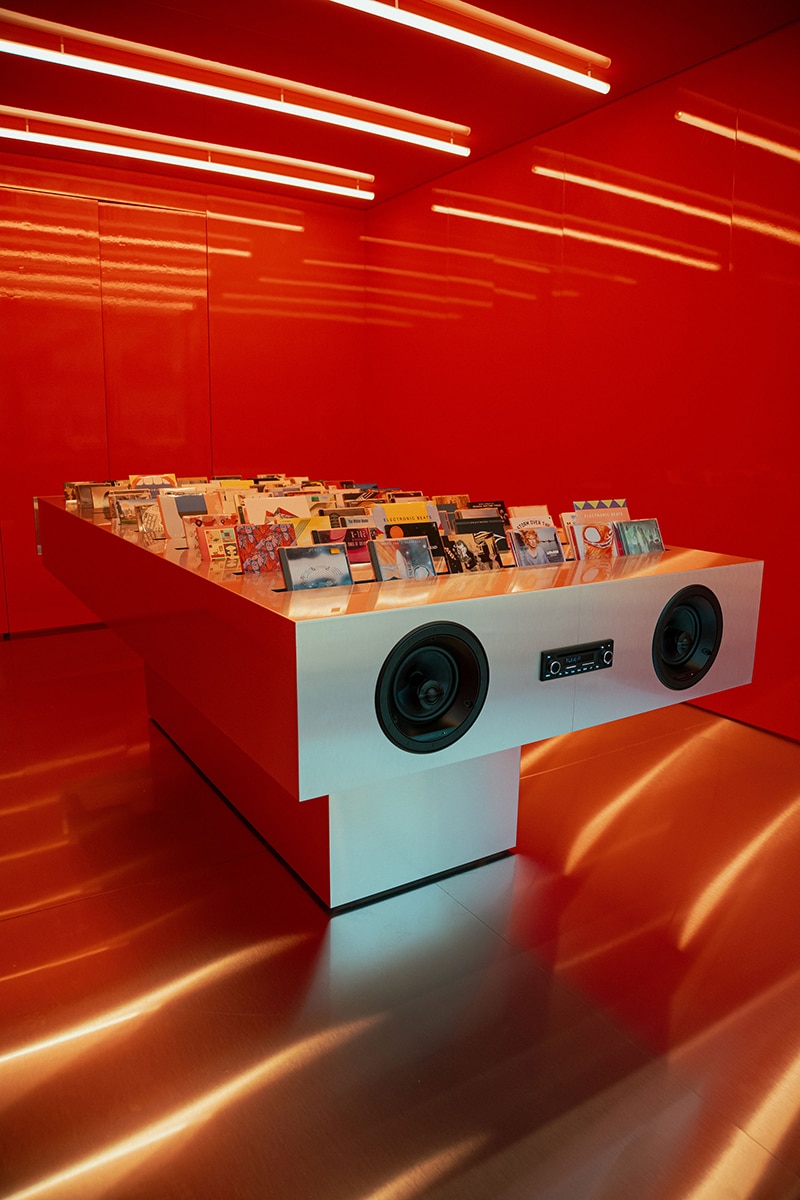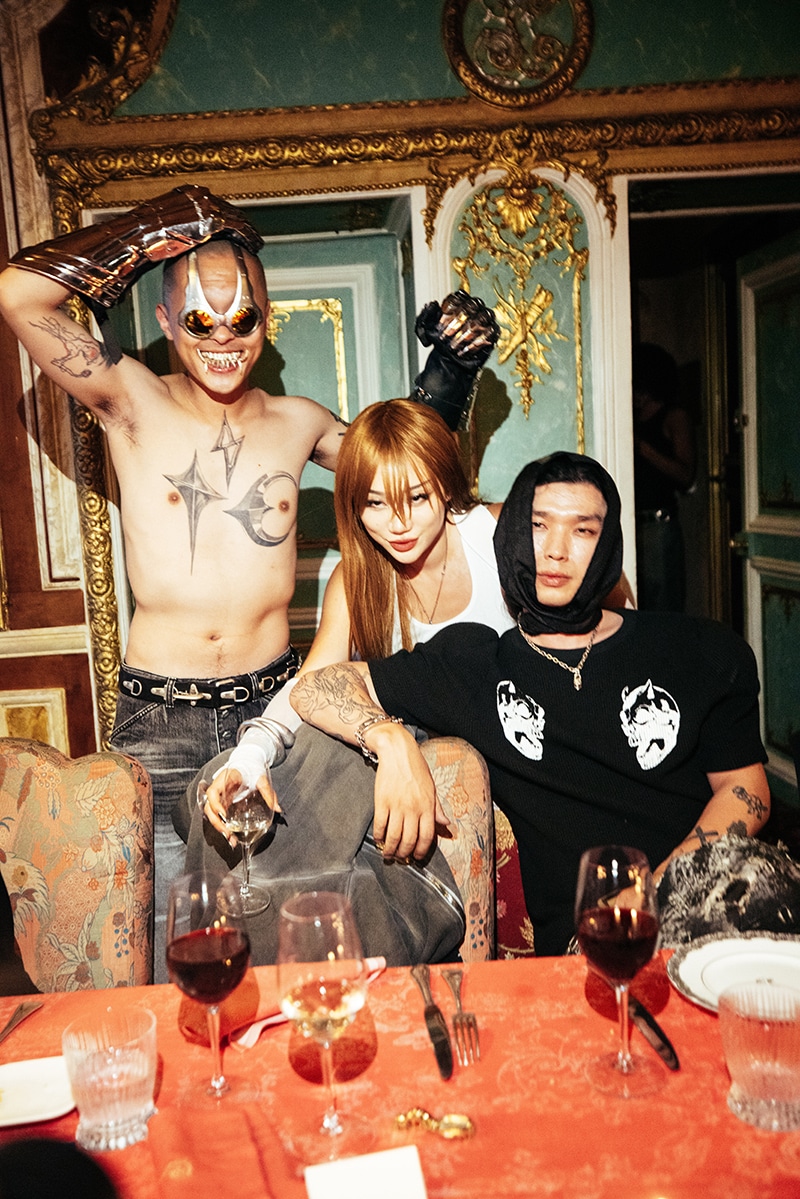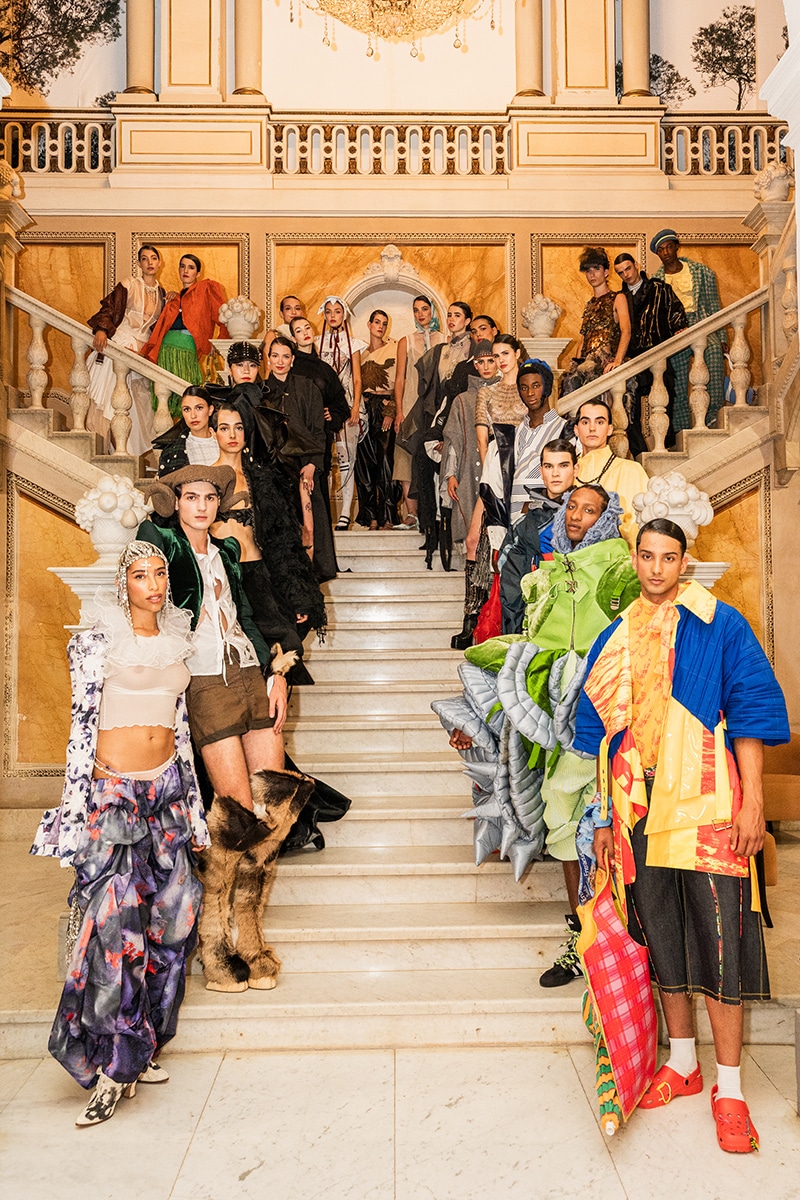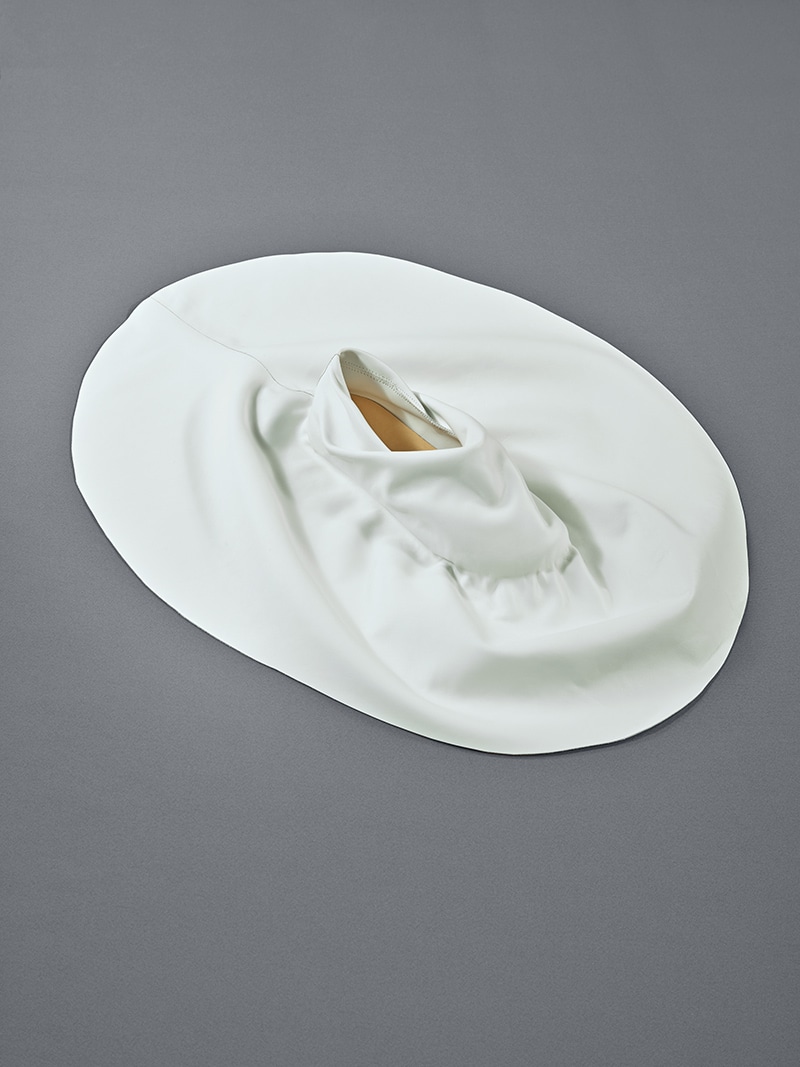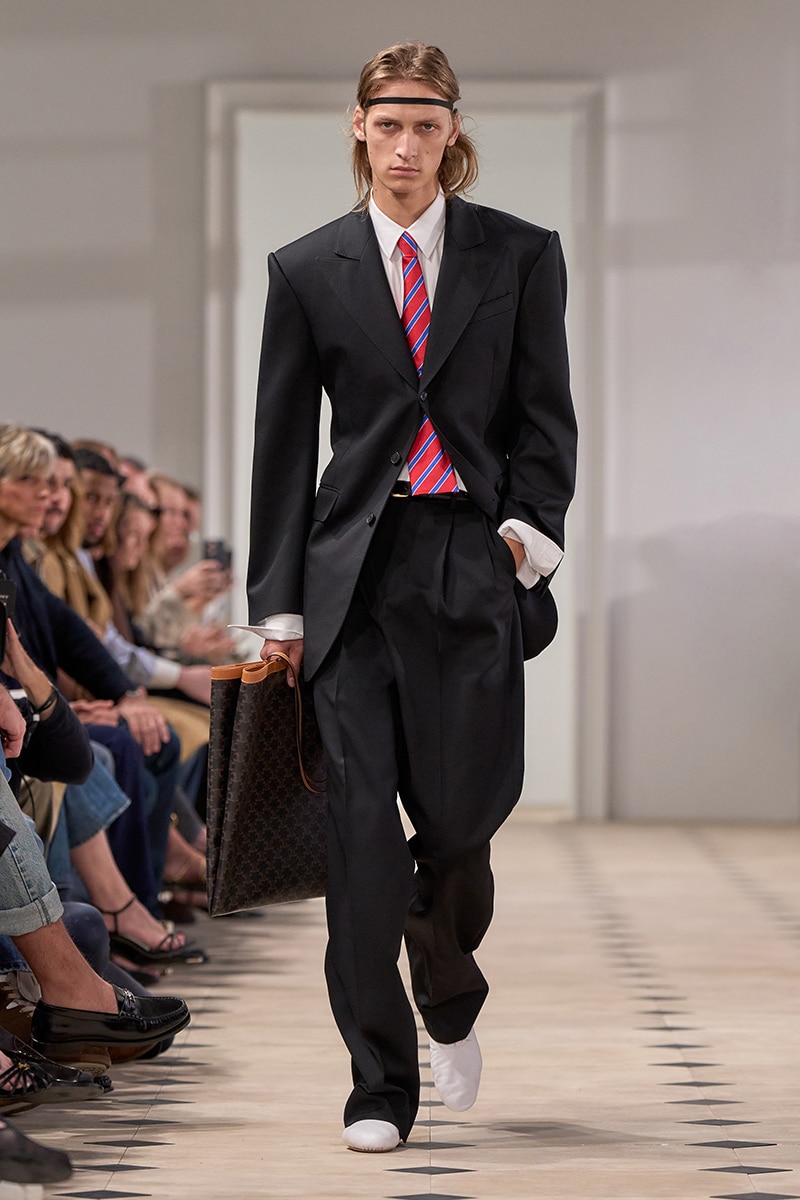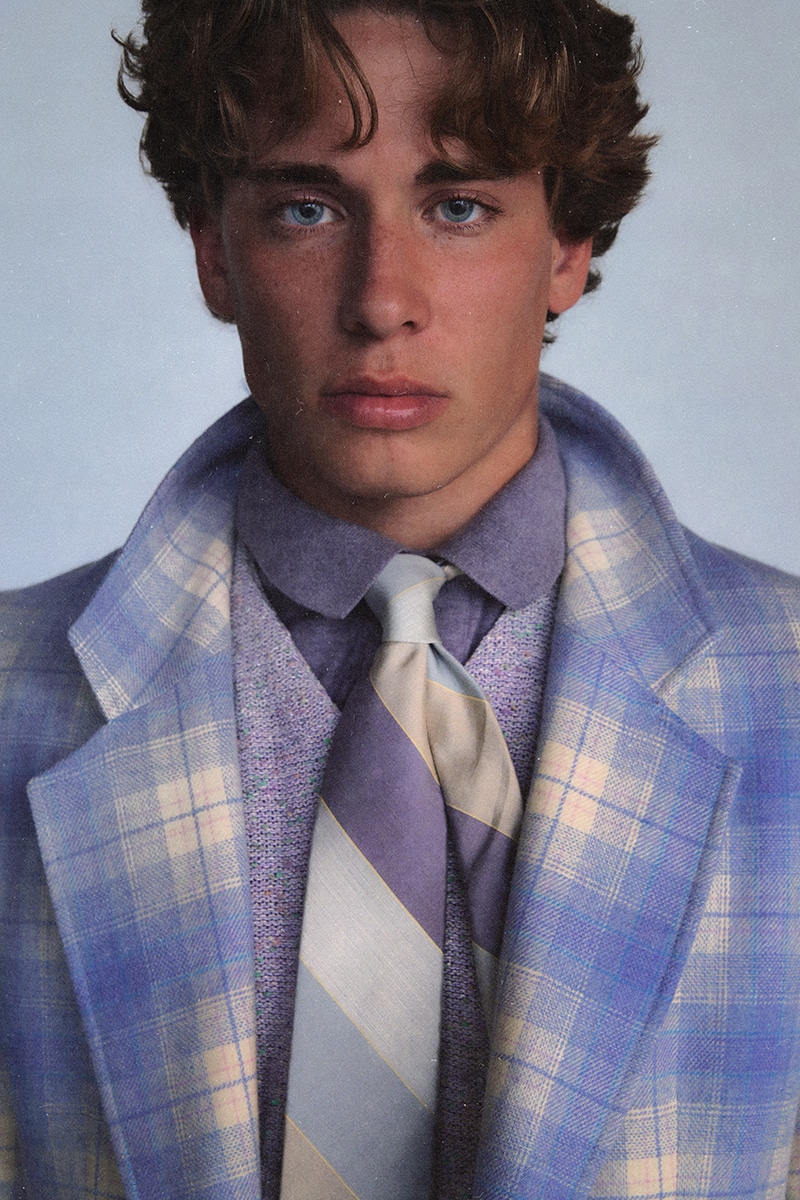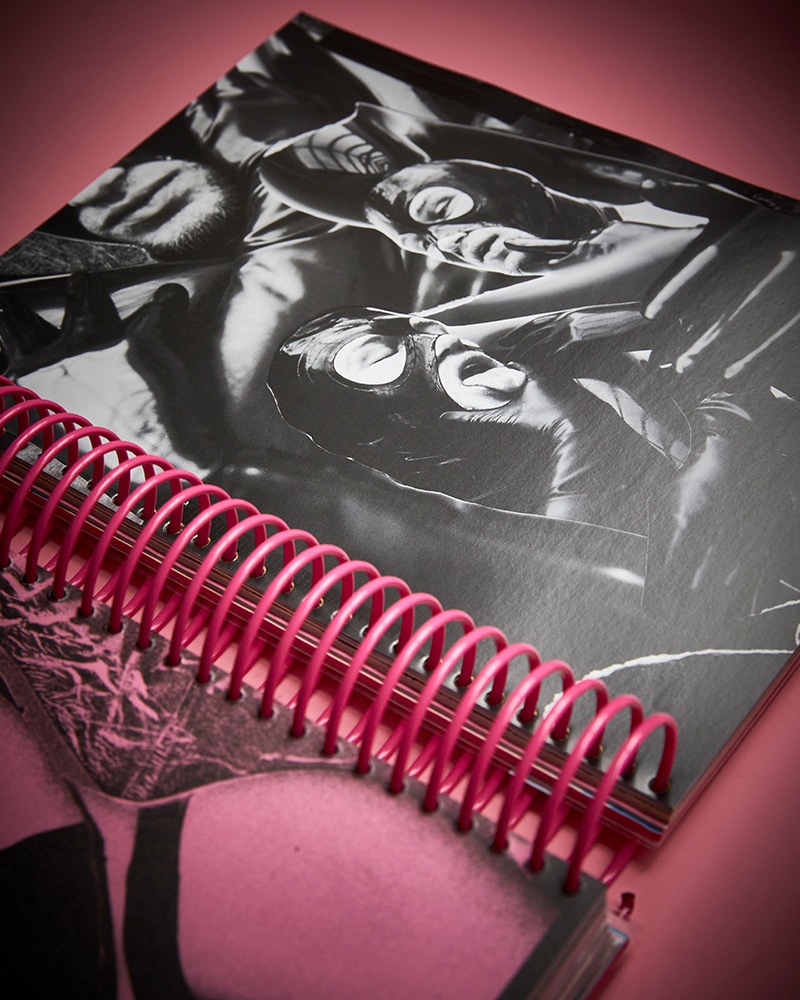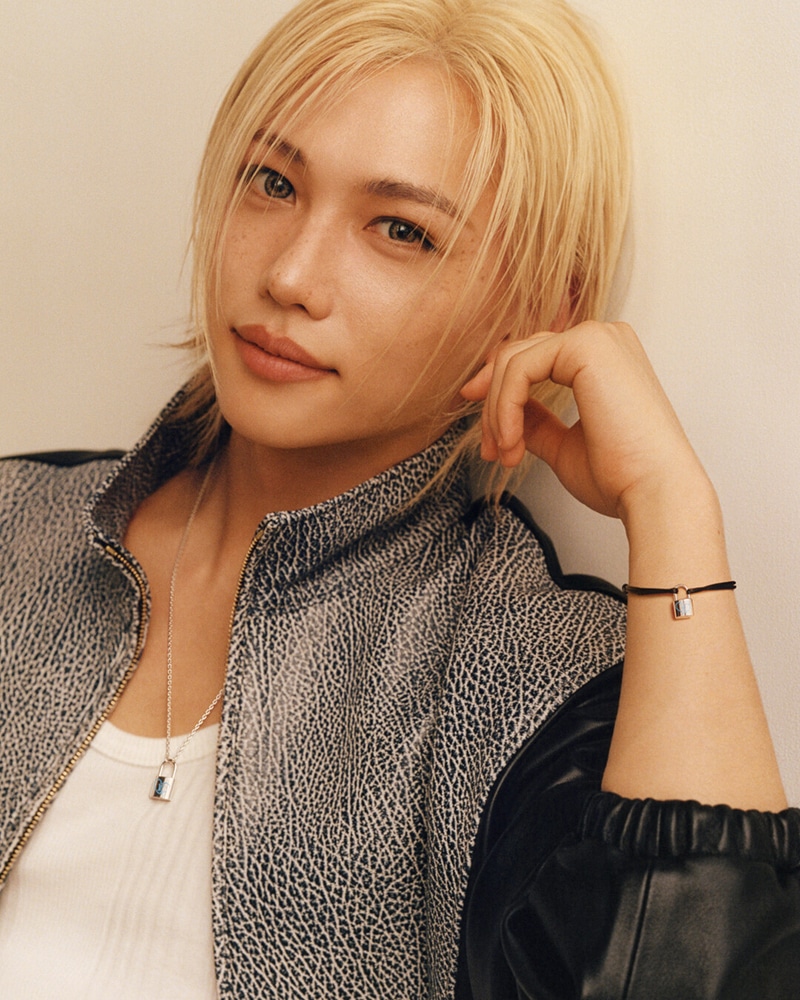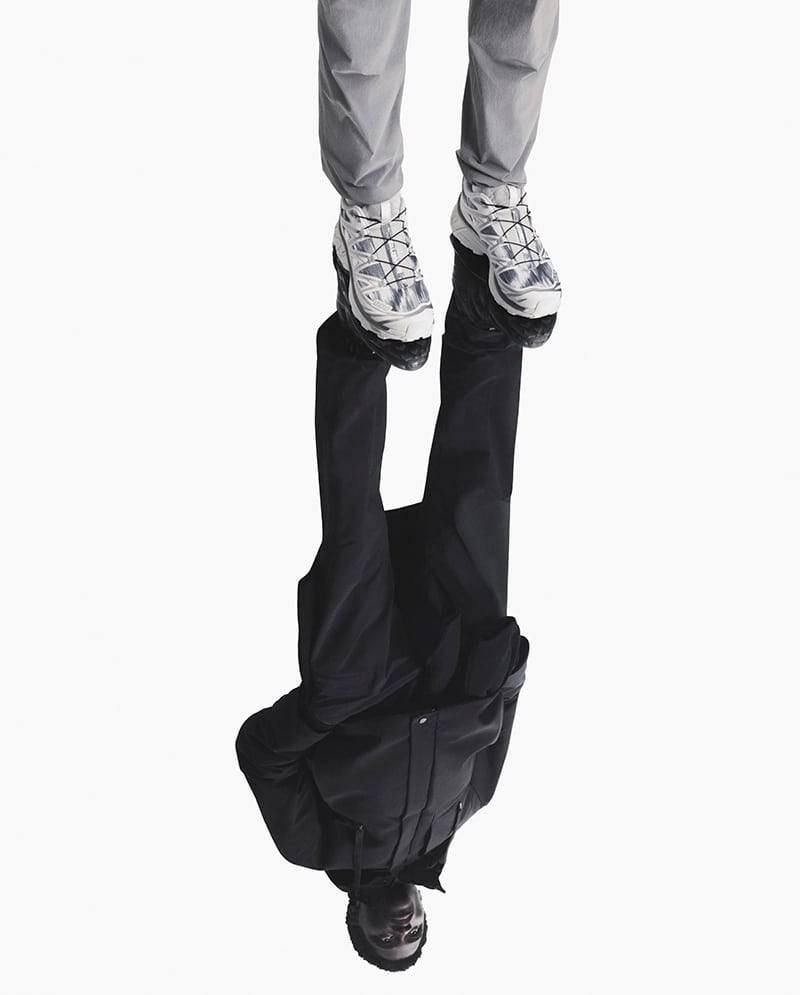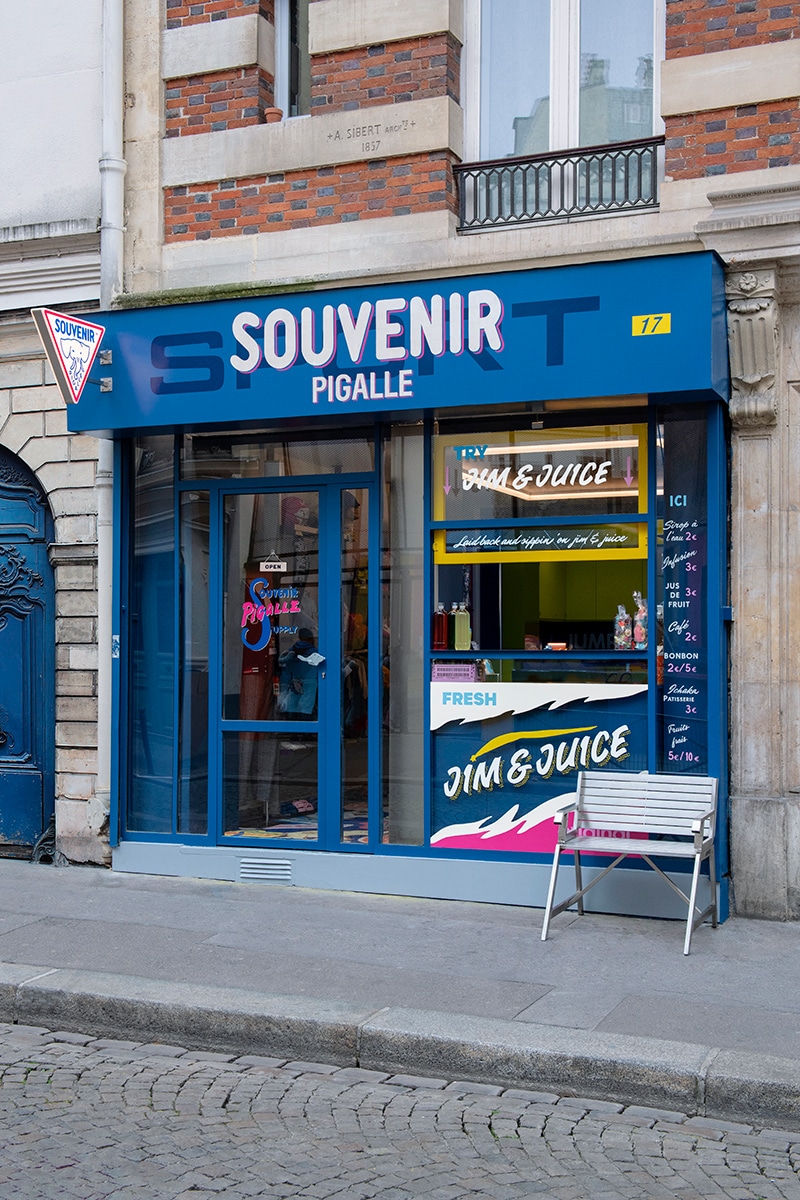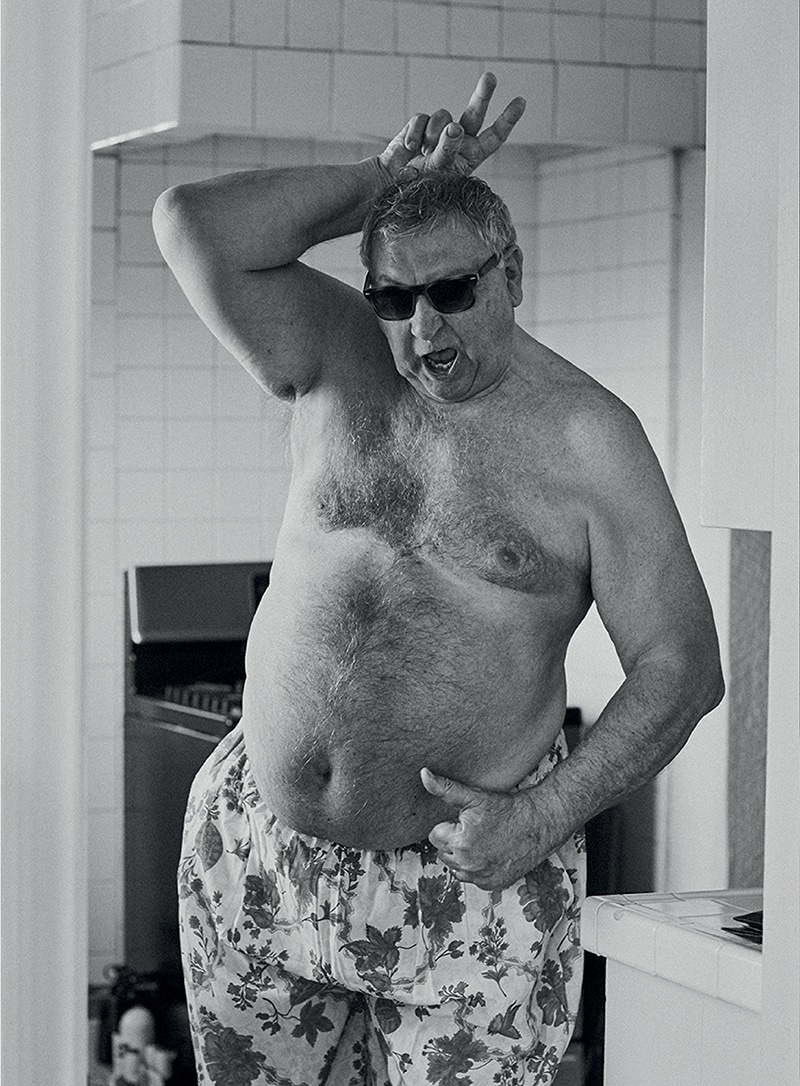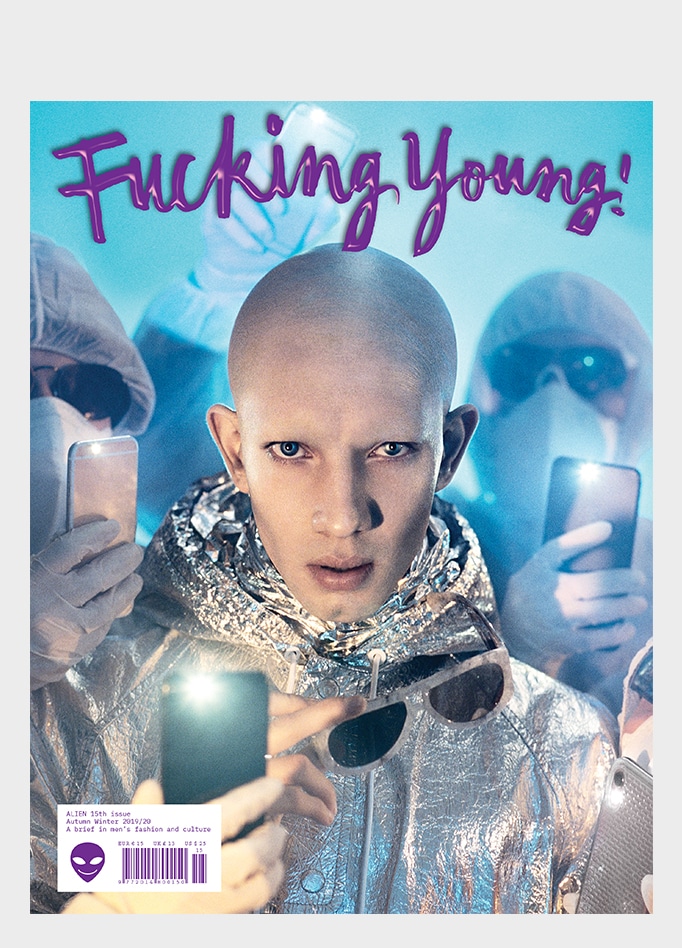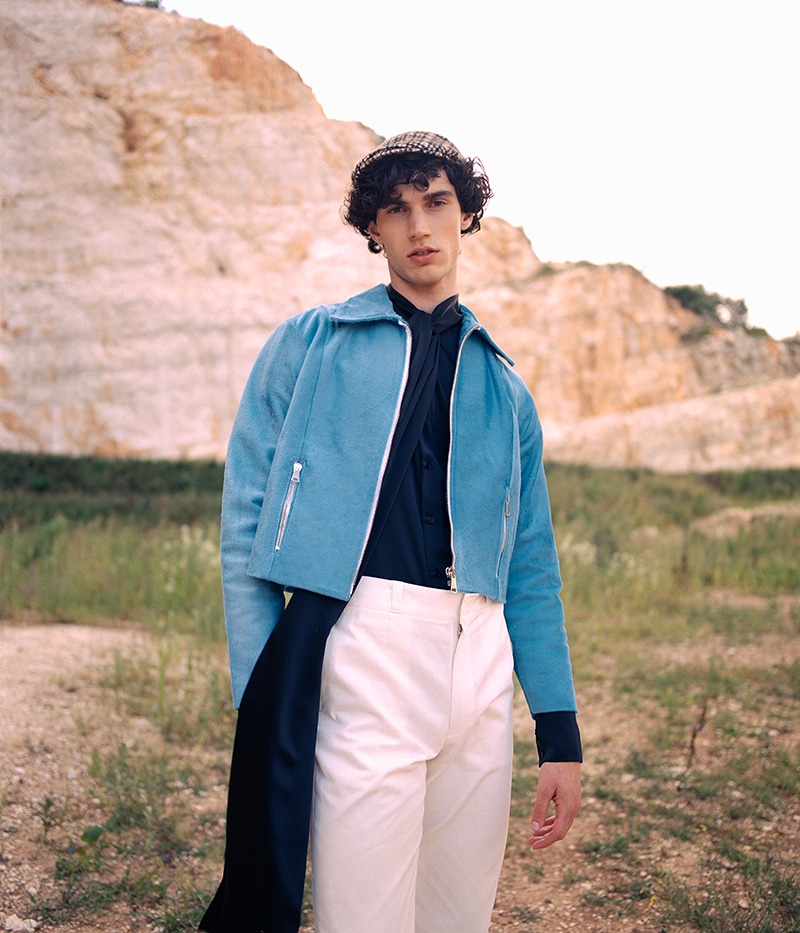
Just like the rest of us, Venice-via-Milan dancer Marco Bozzato grew up busting dreams “to grow and mature.” The difference is that Marco kept his dancing shoes on, leaping into a whirlwind of challenges to perform with the likes of Alina Somova, international Russian productions, and studying at Milan’s La Scala Theatre. An ever-shifting roster of struggles wasn’t his only problem. Bozzato found the very act of dancing highly traumatizing. “I had two major obstacles throughout my life and career,” he tells me. “The first one is the loss of my father when I was 16. I was living in Milan and it was hard to be away from my mum and brother in such a difficult time to keep my studies going, but we all knew that that was the right thing to do for my future hopes.” It’s been tough, but he’s keen on sharing more of it. “I injured myself when I was 20. I broke a cruciate ligament in one of my knees landing from a jump, and I had to have a pretty big surgery as I wanted to keep dancing. It took me one year to get back in shape,” he says. When we talk, that sense of enthusiasm explodes in his words, which pays testament to that fervor, likewise a homage to his growing confidence. “I had another surgery on the same knee last year but thankfully it was not as big as the first one; anyway, I’m still here.” Soulful and honest in equal measure, his groove takes us through a sea of heartfelt escapism into the dance world. Here, we caught up with Marco to find out more.
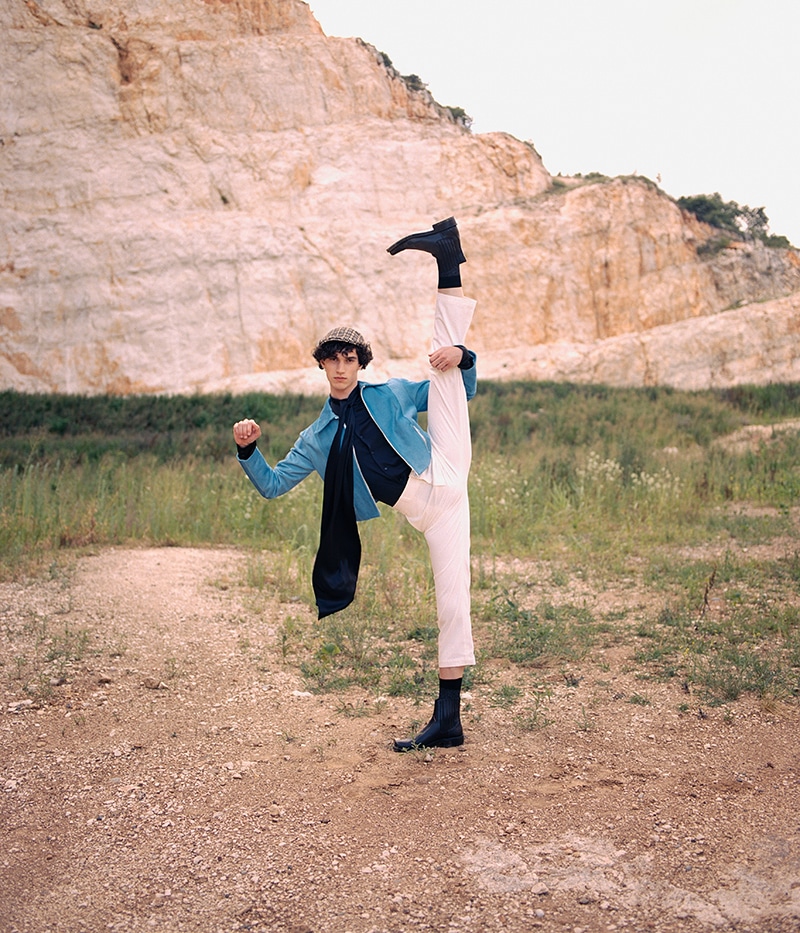
Before we get deep-down on this, let’s begin it with the basics. Could you introduce yourself to us?
Hey Fucking Young! I’m Marco Bozzato, a ballet dancer and model. I’m originally from Venice but I lived there until the age of 12 when I left my family and moved to Castelfranco Veneto to study in ballet school. Four years later, I gained admission to La Scala Ballet School, so I moved to Milan where I studied there for two years. Subsequently, I moved to London to round-up my studies at the English National Ballet. I started my journey as a professional ballet dancer whilst working with English National Ballet and New English Ballet Theatre. However back then, due to an injury, I came back to Italy and I chose to carry out the modeling path. After my rehabilitation, I have been asked to join the Mariinsky Theatre in Saint Petersburg, so I left for the cold Russia where I kept working in the fashion industry. I was there for two years and now I’m back in Milan, where I keep my two careers rolling. My plans now are to join a big theatre in Europe, in a city that allows me to work well as a model too. I don’t want to quit any of them, so I’m working hard to make this happen!
How would you describe your persona?
I would describe myself as a sunny, kind, and friendly chap, but yet shy and thoughtful. Sometimes I’m an over-thinker but I love to experiment, try new things and meet people I can have some kind of exchange with, whether they’re ideas or stories of a different kind. I love to discover fresh perspectives of life and see things from various angles. I’m very open-minded about everything and I’m a do-gooder. Most of all, I’m a hard worker and a strong believer that if you truly believe in yourself, everything is possible.
What did you grow up watching?
I grew up watching Disney. I was addicted to Disney movies and I still am!
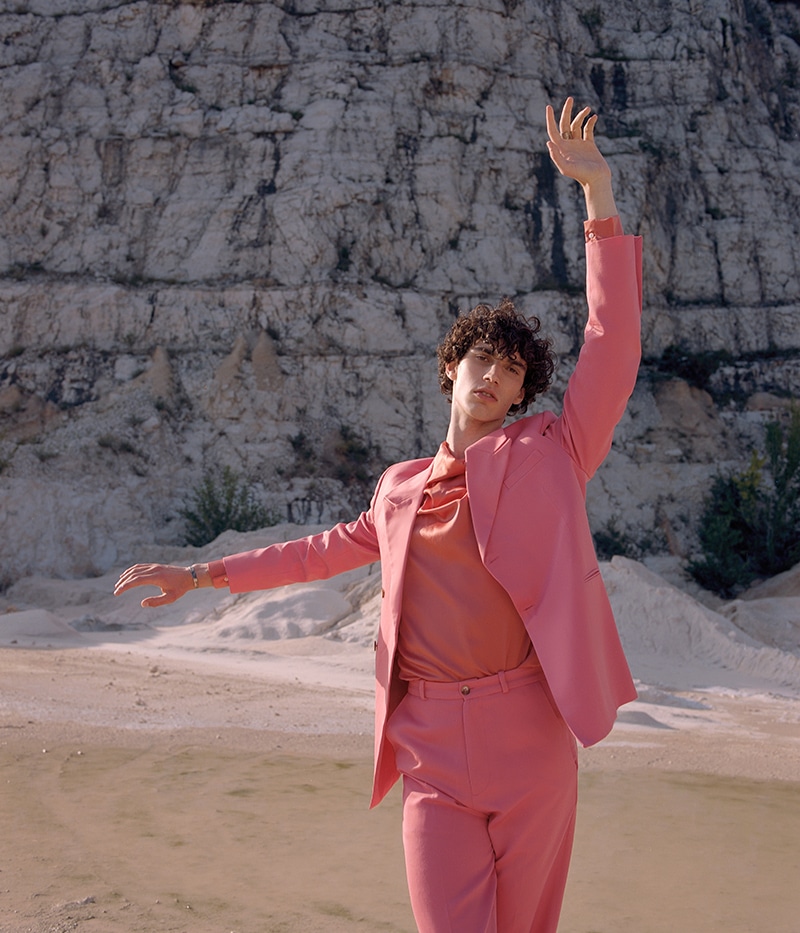
Two words that describe your best self are…
Three words to describe me would have to be passionate and driven.
What does dance mean to you?
Dancing is a fundamental part of my life. Dancing is what has helped me grow and mature, instructing me on how to live outside the ballet studio. It gave me a discipline and a view of life that I will forever be grateful for. Dancing is a vital part of me.
Who’s been the dream client to work with?
My dream client is definitely Versace. I love the style and history of the brand. I love how true to itself it remained since its inception yet being able to stick to a modern aura. It definitely reflects my personal style.
How did you find a connection between dance and fashion?
I have to admit that maybe it was not the easiest thing to find a connection-balance between dance and fashion. I come from a ballet background known for its discipline, which sometimes can be read as stiffness or discomfort. I had to find a way to keep the elegance of ballet without looking like an ironing board all the time. Luckily, I am easy when it comes to that, and I adjust myself very quickly to every situation, so it didn’t take long for me to get used to new requests I was getting; it came quite naturally.
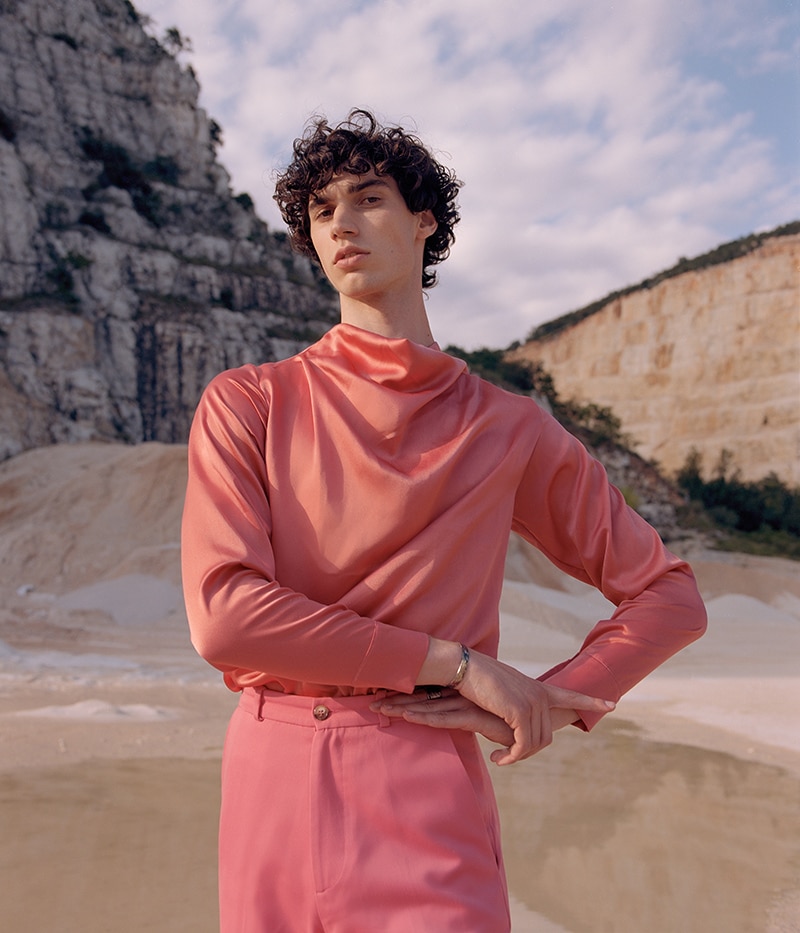
Do you prefer the stage or the runway?
It’s impossible for me to answer this question, I can’t choose one. They are so different but yet so similar. Every emotion has different shades I feel when I’m on stage and when I’m on a runway are similar, they will never be the same and I could never choose just one. When I’m telling the story of a character on stage is definitely not as walking on a runway, but when I’m on a runway and I feel the lights, the people, the energy end effort is completely different. They’re both stages, in both of them you’re in front of a public and in both of them you’re filled with music but at the same time, they’re the opposite of each other.
Favorite experience thus far?
I had many experiences that I consider my favorites, but if I had to pick just one it would have to be dancing with one of my favorite ballerinas, Alina Somova, a little pas de deux.
What has been the most challenging momentum?
One of the most challenging moments was not on stage but was recovering from the surgery I had. I got part of a tendon removed from my thigh and put next to the broken ligament in my knee. Before getting back to my profession, I had to learn how to walk, and then once I got back in the ballet studio, I had to start again from the bases just as if I was a kid. It has been very hard both physically and mentally.
What about the most rewarding/most difficult?
The most rewarding moment would have to be being asked to join the Mariinsky Theatre, likewise all the things that came after that. Moving to Russia was very hard, I had a lot of problems with documents, the language and with my colleagues (that we’re not very welcoming towards a foreign dancer). However, I managed to go through them.
Has education been an imperative cornerstone in your practice?
The education you get in ballet is absolutely essential if you want to undertake this path. A ballet dancer has to start very early because when you’re a kid you must discipline your body. It needs to get used to some unusual movements because when it’s young and malleable, getting older the body starts getting stiffer and stiffer and it’s much harder to learn and understand how to use it in the right way. If you start studying well when you’re little you teach your body the bases to then progress in what ballet is, just how a kid learns a new language if he starts when he’s young. Ballet is a language you have to teach your body.
How’s it been for you since the start of your journey? Did you encounter any major hindrances when you first started out?
Being a male dancer has never been easy. Even if we think that now the world is more open-minded, male ballet dancers are still surrounded by prejudice. Ballet is still considered a “sport for girls” (by an ignorant, of course) so a little boy that likes to dance is considered homosexual and too feminine. I’m absolutely not saying being so is wrong but for those people is, that’s why a male ballet dancer often faces bullying. And not only when you’re a kid, when you’re an adult too. What I would like to make clear is that, first of all, everyone has to be free to do what they like without having people judging and second, ballet is not a sport, ballet is an art and if only we had more people interested in true arts the world would be a better place.
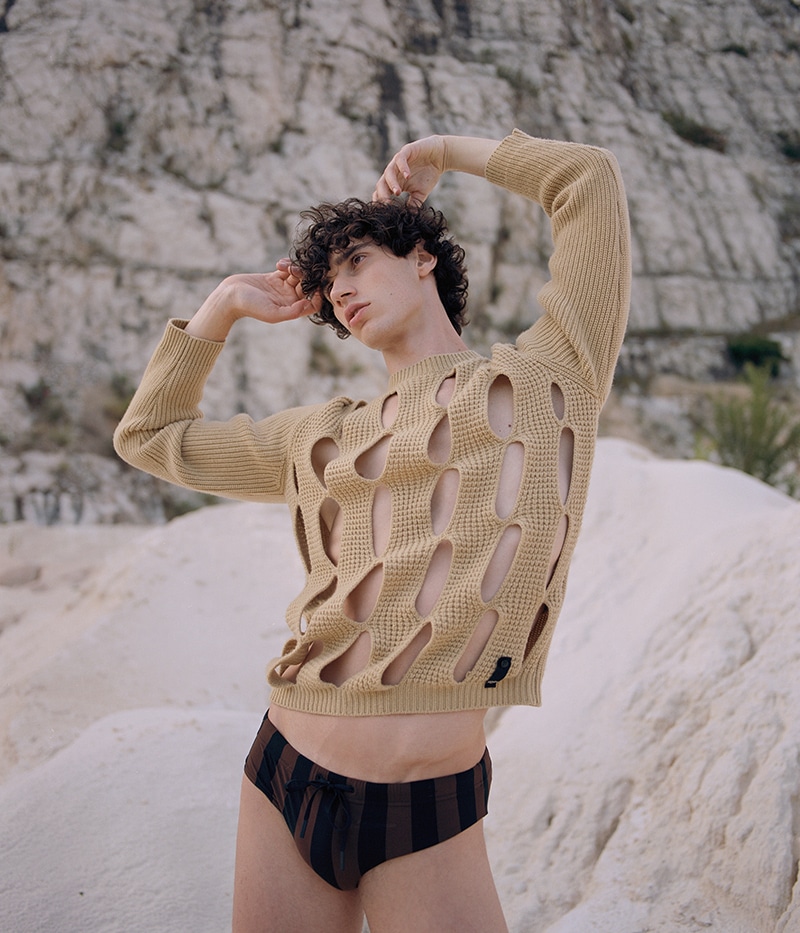
Could you kindly elaborate on the trajectory that brought you to dive into this field?
I started dancing when I was four years old. At that time, my mum asked me if I wanted to start doing some sports as my classmates were slowly starting to, so I don’t know how, and I don’t know why but I told her I wanted to dance. She took me to ballet classes that were more a kind of propaedeutic, since then I kept dancing slowly progressing in what is, as I said before, the real ballet.
Essentials to bring along your travels for a last-minute job are…
No matter where I go and for how long, you will always find a pair of ballet shoes, a unitard, and my beloved book (or at least a comp card) in my luggage.
How do you react to trolling and online criticism?
I have to admit that I have never really encountered much online criticism and trolling on my social media. What I did encounter is people judging me just from them and thinking they know me, my thoughts, and my soul just from what I post and to that my reaction is apathetic. I try my best to be my true self on social media, so if people want to judge me just from a photo, they’re welcome to, but people have to understand that we’re much more than just a photo on Instagram.
In an era raged by the ruthless desire of social media appearance, being constantly exposed to the public’s eye must result quite daunting, In a nutshell, what are your key thoughts in regard to the whole Instagram thing?
In my opinion, Instagram is a wonderful platform to share and discover new things: from places to people and from art to everyday life. Being always watched, observed, and judged is definitely scary and stressful if we think about it, but what I think is that if we are true to ourselves and we don’t sell us posting what people want to see and want us to do we have nothing to worry about. Of course, staying out of the “dark side.”
Do social media boost your identity? Or do they destabilize it in a way?
It really depends on your personality. Being on social media means having a confrontation with people every day, and we all know that people have very different opinions. I would say that it boosts your identity if you have a strong personality or if you’re lucky enough to find a public that loves the same things that you do and loves what you share otherwise is a grave.
I imagine that due to your kind of occupation, you tend to travel a lot. What’s your favorite city and why?
My favorite cities are London and Milan. I love the sense of freedom I get in London and I love how comfortable it is and I love Milan because I feel at home, I have a lot of friends here and I love the atmosphere.
What do you wish you could have done differently throughout your journey?
I am grateful for my journey exactly how it is. I like the person I am today, and I wouldn’t be who I am without every single thing I went through.
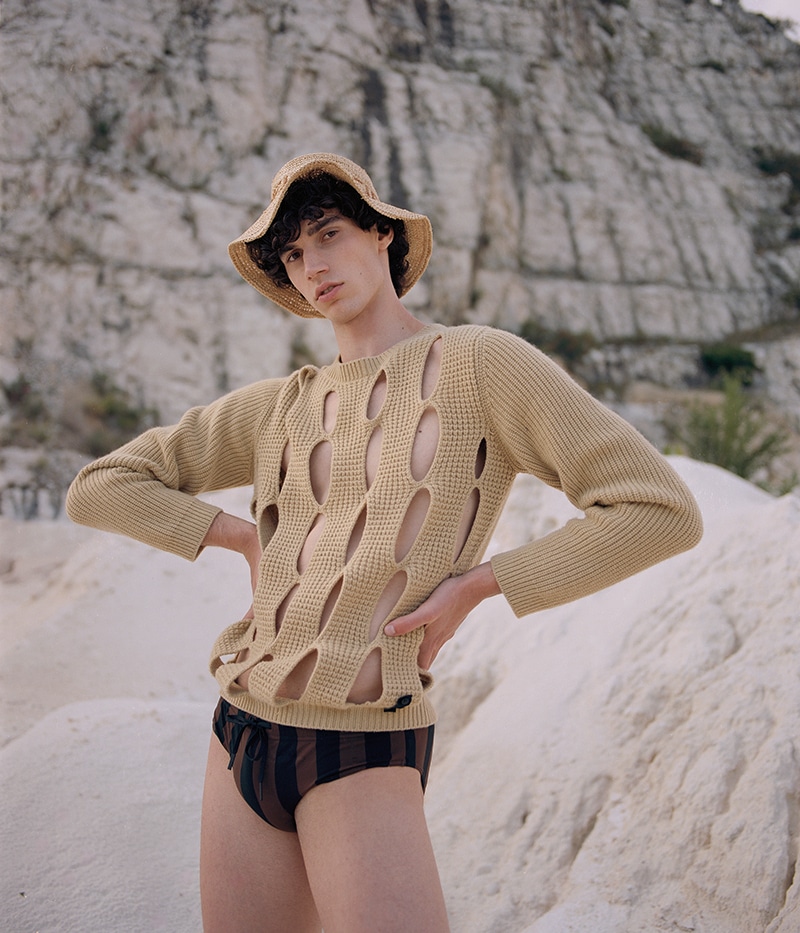
Any major inspirations?
This question has always chased me, and I was never able to understand where my inspiration came from. I finally realized that, not so long ago, my inspiration comes from inside me. I find inspiration from my emotions, experiences, from what I felt, and from what I have inside me.
What are the biggest obstacles you’ve had to deal with?
I had two major obstacles in my life and career. The first one is the loss of my father when I was 16. I was already living in Milan and it has been very hard to be away from my mum and brother in such a difficult time to keep my studies going. It was hard for me and I couldn’t stand the thought of leaving them two home alone, but we all knew that that was the right thing to do for my career. The second one is my injury when I was 20. I broke a cruciate ligament in one of my knees landing from a jump, and I had to have a pretty big surgery as I wanted to keep dancing. It took me one year to get back in shape, but thanks to the wonderful teacher Candida Amato, director of the “Aurino e Beltrame Ballet School” in Palermo, together we have been able to get me back stronger than ever and I then joined the iconic Mariinsky Theatre of Saint Petersburg, Russia. This time off the ballet studio after the surgery is when I started being a model, so do you see what I meant when I said I don’t wish I had done anything different in my journey? If that didn’t happen now, I wouldn’t probably be a model, I wouldn’t be here doing this interview and most importantly, I wouldn’t be the person I am today. I had another surgery on the same knee last year but thankfully it was not as big as the first one, and anyway I’m still here. Dancing and dreaming.
Who would you like to be remembered for?
The main thing I would like to be remembered for is to have touched somebody’s soul, to have helped them in any possible way, and to have inspired them.
How do you feel like your legacy will be left in the world?
I wish to leave a footprint on this world with the art I make. I hope my legacy will be an understanding of how important it is to help, touch, and inspire people.
What’s the wisest lesson you’ve learnt being in the industry?
The wisest lesson I have learned in both my industry is to work hard for yourself and your goals. Nobody is going to come and handle them to you in a nice package and they’re not going to fall from the sky. You have to work for them, fight for them, and get them yourself!
Any advice to give the young wave of aspiring people, wanting to venture into your world?
My advice, not only for young people but for everybody, is to believe in yourself and most importantly, do what makes you happy. People like to talk, judge, and tell you what you should and shouldn’t do. Life will be much easier if you’re good with yourself, no matter what people think. Listen and love yourself first.
